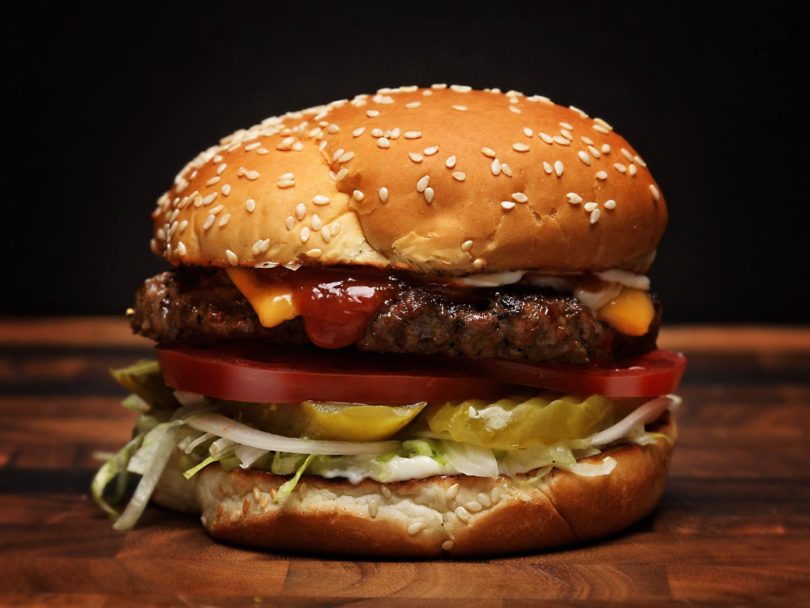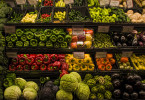J. Kenji Lopez-alt has changed the way I cook. Seriously. Since I got his cookbook about a year ago (fun story: I walked into a sushi place with it the day it launched, and the lady behind the counter gave me a discount in exchange for a flick through the recipe section), I’ve rethought my approach to burgers, saved a cumulative twenty-odd hours of life making chicken and ended a decade-long anxiety about the best way to make Yorkshire puddings. I’ve learned why sausages sometimes go so dreadfully wrong, and how to make them perfectly every time. And, more than anything else, I have learned a way to make cauliflower that I will eat like French Fries. If cooking well is foundational to a healthy life (and I think it is), then Kenji Lopez-alt is the best fitness expert you’ve never heard of.
How can one chef be such a game-changer? Simple: Lopez thinks of food like a scientist. Firstly, he explains what’s going on when you cook in science-terms (best example: brussels sprouts taste bad because overcooking them breaks down sulphurous compounds called glucosinolates in them, while destroying the sharper tasting compounds that you want: so the goal in cooking them is to get them hot as fast as possible). Secondly, and maybe more importantly, he experiments on food, using controls and quantifiable results, like an actual scientist. In his seminal Yorkshire pudding experiments, for instance, he tries all the myths about good Yorkshires (hot pan, cold batter, rest the mix overnight, add a splash of water), makes about forty batches of puddings, and sees what works. Result: I don’t have to do the work, and I can make my Yorkshires happy that, for once, I’m doing it right. Take the guesswork out of cooking, and (for me, at least) it’s a lot more fun.
So: I decided to ask Kenji about some stuff. Specifically, I wanted to get his thoughts on starting the process of cookery, because I know it’s something that took me years of adult life to get into. And because he’s a lovely, sharing chap (check out his Reddit profile for more info than I can fit in here), he was happy to share. Here’s what we talked about.
Obviously, not all Food Lab stuff is explicitly health-focused. How much is nutrition a concern when you’re coming up with recipes? Do you have any general rules of thumb when it comes to eating ‘healthy’?
It’s not really a primary concern of mine. I find by cooking a variety of foods and focusing on vegetables, the nutrition mostly takes care of itself (and my doctor/tests tends to agree). My overall eating philosophy is this: we all know what crap is, just don’t eat a lot of it. I keep my diet varied, I eat a lot of vegetables, and I only order a small popcorn when I go to the movies. Regular exercise, eating a varied diet, and stopping before you’re completely stuffed is a diet that works whether you’re a vegan or an omnivore. The other important thing is not to deprive yourself of the occasional indulgence. That only makes you resent food, when it should be something to celebrate.
What’s the one thing most people do when they’re trying to teach themselves to cook that you think is kind of a waste of time?
As long as you’re cooking you’re not wasting time, but I do think people tend to focus too much on recipes instead of seeing through the recipes to the techniques behind them. Understanding technique is what frees you in the kitchen and allows you to develop your own recipes.
What do most people neglect that you think they should do?
Start with the basics. Get a good knife and learn to use it properly. Knife skills are the foundation of all good cooking, especially when it comes to vegetables!
If someone was going to spend, say, a month teaching themselves to cook from scratch (or near as damnit), what would you tell them to focus on? And if they were going to drop $100 on gear, what would you tell them to buy?
I would spend $50 on a Tojiro Pro knife, $20 on a large cutting board, and $30 on a decent stainless steel pot big enough to cook soups, boil beans, blanch vegetables, etc. Don’t focus on trying to recreate a restaurant meal or on something that you’ll only use to try and impress friends at dinner parties. Focus on the staples that will feed you and your loved ones every day, whether that’s learning how to make a good vinaigrette so your salads become a meal, how to properly boil or scramble eggs, or how to cook a pot of beans to that perfect creamy consistency.
What resources would you suggest they use (apart from the Food Lab, obviously)?
America’s Test Kitchen does a great job of explaining the basics. I really enjoy Jacques Pépin’s work as well. [ed note: you should absolutely check out Jacques’ five-minute omelette tutorial, as seen here]
Totally unrelated to cookery: what else in your life do you always make time for? What makes you happy?
Hanging out with my wife and dogs, playing music and singing, woodworking and remodeling our house, playing video games and going to the movies, and doing any kind of adventurous outdoor activity (the more travel the better!) are all on my list of favourite things to do.
Short but sweet. Get after it.
HOMEWORK: Head to Serious Eats and have a read through Kenji’s work. And cook something new this week.





Leave a Comment